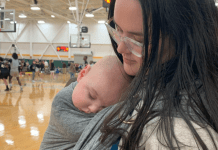When you think of foster care, what is your gut response? Maybe you’ve heard inspirational stories of kids beating “the system,” families who’ve fostered 10-30 kids, or children finding their forever homes and living happily ever after. Maybe you have also heard some of the uglier stories, the ones where foster parents become the abusers, or where the children damage property or run away.
Whatever you’ve heard in the past, you probably like the idea of foster care. Thanks to shows like This Is Us, foster care has become a little less mysterious. Yet, it is still a bit confusing and maybe even scary for many. When I tell people that we are foster parents, the most common response I get is: “Wow that’s so great, but I could never do that.”
They like the idea of it…from a distance.
There are probably many reasons why we keep our distance, but I think the main reason is the unknown. Before we got started with fostering, we knew so little we didn’t even know what to ask. So in honor of Foster Care Month, I want to help you understand foster care better so you feel confident to come a little closer, whatever that looks like for you. Though I love to share my heart for foster care, for now, let’s just tackle the who, what, where, and how.
Who:
A foster child can be any child whose needs have not been met the way every child deserves for them to be. Though they have been anything from neglected to abused, no child chooses to leave their parents. It’s traumatic, in every circumstance, no matter how horrible of a situation they are coming from.
What:
What DOES this mean? It’s not the child’s fault. Yes, maybe their behavior is less than ideal. Yes, maybe they’re ungrateful because they just want to go back to their parents. But remember they were just taken from the only home they’ve ever known. They need a consistent, loving, adult presence who is not afraid to get close.
What this DOESN’T mean? Their biological parents are bad people. Most of the time they have little support structures, education, or opportunities to become the kind of parents they want to be for their children that they love. And yes, in most cases, they love their children. The goal of foster care is to reunite children with their parents. Therefore, foster parents have the opportunity to work towards that goal by bridging the gap and being a part of the support structure these parents may have never had.
Where:
Maybe you’ve never encountered anyone involved in foster care, so you’re wondering, where are these children? They are in your neighborhood. Your children most likely have multiple foster children in their school. There are 400,000 children in foster care in the U.S. 1,000 in DC, 5,000 in Virginia, and over 4,000 in Maryland.
How:
How can you help? Consider fostering. You don’t have to be super-human to do it. You just have to hear their story and be willing to love them right where they are. It’s hard and it’s heartbreaking because getting too attached is the main job of every foster parent. But if you can’t be a foster parent (and not everyone should) you can still help. Consider offering respite care to families, mentoring a child, or donate toys and clothes. Reach out to your local county government to find out ways to help! Most counties hold monthly interest meetings, which means you can show up and get more information without any obligation. Just to make it easy I’ve listed the links below.
Foster Care Links:
Fairfax County
Arlington County
DC
DC 127
Loudoun County
Montgomery County
Prince George’s County















